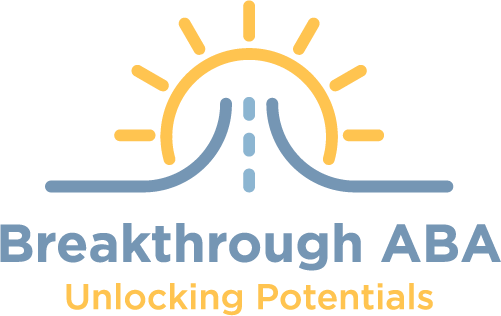Published by Breakthrough ABA
—————–
Why Parent Training Matters in ABA
ABA therapy (Applied Behavior Analysis) is one of the most effective evidence-based treatments for children with autism. But did you know that what happens outside of sessions is just as important as the therapy itself?
That’s where parent training comes in. At Breakthrough ABA, we partner with families across the Greater Houston area to ensure that the strategies used in sessions are successfully applied in the home—where real life happens.
What Is Parent Training in ABA?
Parent training is a structured, ongoing part of ABA services that teaches caregivers how to:
- Understand their child’s behavior
- Respond using evidence-based ABA strategies
- Reinforce learning between therapy sessions
- Reduce problem behaviors calmly and consistently
- Promote independence and communication
The goal is to empower families—not to turn parents into therapists, but to give them tools that improve daily life.
Benefits of Parent Training in ABA Therapy 📈💬
1. Consistency Across Environments
Children with autism often learn best through repetition. When parents use the same techniques as the therapist, it creates a consistent learning environment at:
- Home 🏡
- School 🏫
- Community settings 🛒
This consistency helps the child generalize skills like requesting, turn-taking, or transitioning between tasks.
2. Faster Skill Development
When parents reinforce newly learned behaviors at home, the child receives more opportunities to practice. This leads to:
- Quicker progress toward goals
- Fewer setbacks between sessions
- Better long-term retention of skills
A study published in the Journal of Autism and Developmental Disorders found that parent-led interventions contributed to significant improvements in communication and adaptive behavior.
3. Improved Family Dynamics
Parent training gives caregivers the confidence to:
- Respond to challenging behaviors with calm strategies
- Communicate more clearly with their child
- Reduce stress and frustration during routines like meals, bedtime, or errands
This often leads to a calmer home and better sibling relationships, benefiting the entire family.
4. Better Understanding of Your Child
Through training, parents learn to identify the “why” behind behaviors (known as the function).
For example:
- Is the child hitting because they want attention?
- Are they avoiding a task because it’s too hard or too boring?
Understanding the function allows parents to address the root cause, not just the symptom.
What Parent Training Looks Like at Breakthrough ABA 👩🏫
We tailor parent training to each family’s needs. It may include:
- 1:1 coaching with your BCBA
- Observation and live feedback during sessions
- Role-playing difficult situations
- Home practice activities with follow-up support
- Visual aids, data sheets, or video modeling
Whether your child is working on toilet training, transitions, communication, or reducing tantrums, our team gives you practical tools that work.
Common Skills Parents Learn in ABA Training 🎯
| Skill | Purpose |
| Using reinforcement effectively | Strengthens positive behaviors |
| Prompting and fading techniques | Helps teach new skills while building independence |
| Managing meltdowns or aggression | Promotes calm, safe responses |
| Increasing communication | Teaches functional ways to request and respond |
| Building routines | Creates predictability and reduces stress |
ABA at Home: You Are the Key 🔑
No one knows your child better than you do. With ABA parent training, you become a powerful part of your child’s progress.
Our goal at Breakthrough ABA is to build a strong, trusting partnership—one that leads to confident parenting, happier homes, and lifelong success for your child.
Final Thoughts: Empowering Families Through ABA
ABA isn’t something that only happens in a clinic. It happens when a child learns to ask for juice, wait their turn, or calm down after frustration—in real life, with you by their side.
With support from Breakthrough ABA, parents in Houston, Cypress, Katy, The Woodlands, and beyond are transforming their homes into nurturing, growth-focused environments—proving that success doesn’t end when the session does.
